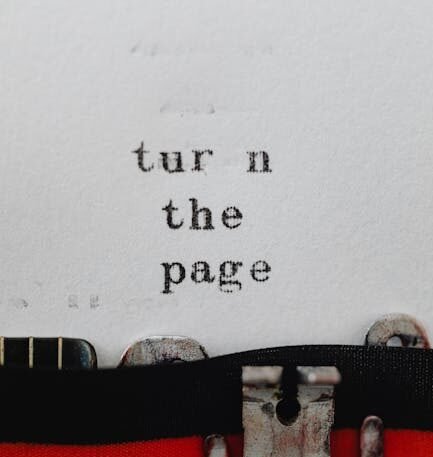
Egypt’s Rich Literary History
Ancient Egyptian Literature
Egypt’s literary legacy dates back thousands of years, with ancient texts that resonate even today. From hieroglyphs gracing temple walls to papyrus scrolls, the storytelling of the pharaohs and their poets continues to pique our interest. Ancient Egyptian literature includes a diverse array of texts:
- Religious Works: Such as the Book of the Dead, offering insights into the afterlife beliefs.
- Wisdom Literature: Like “The Wisdom of Ptahhotep,” which conveys moral teachings and social norms of the time.
- Fiction and Poetry: Tales like the “Tale of Sinuhe” reflect personal experiences intertwined with the cultural ethos of ancient Egypt.
Influence of Ancient Literature on Modern Works
The profound impact of these ancient works on modern literature cannot be overlooked. Authors worldwide have drawn inspiration from Egypt’s mythical tales, embedding themes of heroism, moral dilemmas, and the complex relationship between humanity and divinity.
For example, many modern novels and films incorporate Egyptian mythology and symbolism, suggesting a timeless allure. The quest for identity and existentialism found in ancient texts resonates with contemporary readers.
Impact of Arabic Literature
As Egypt embraced the Arabic language following the Islamic conquests, its literary scene expanded significantly. The Arabic literary tradition brought forth influential poets and philosophers who contributed to a vibrant cultural dialogue.
Notable points of impact include:
- Prose and Poetry: The richness of Arabic prose and poetic forms can be traced back to medieval Egypt, influencing countless generations.
- Cultural Identity: Egyptian writers began to explore themes of nationalism, social justice, and political discourse, fostering a sense of identity through literature.
Through these layers of history blending into modern works, it’s clear that Egypt’s literary backbone remains strong, continuously inspiring and shaping new narratives.

Notable Egyptian Writers
Naguib Mahfouz
One cannot discuss Egyptian literature without mentioning Naguib Mahfouz, the first Arab to win the Nobel Prize in Literature in 1988. His works, particularly the Cairo Trilogy, delve deep into the tapestry of Egyptian society—capturing its struggles, joys, and complexities.
- Cairo Trilogy: Comprising “Bayn al-Qasrayn,” “Qasr al-Shawq,” and “Sugar Street,” this series offers a panoramic view of Cairo from the early 20th century.
- Themes: His exploration of existentialism, social injustice, and the intricate human condition resonates widely, making his books timeless.
Nawal El Saadawi
Nawal El Saadawi stands out as a fearless advocate for women’s rights and a prolific writer whose work challenges societal norms. Her experiences as a physician and feminist inform her powerful narratives.
- Notable Works: “Woman at Point Zero,” a novel based on a true story, highlights the struggles of women in a patriarchal society.
- Advocacy: El Saadawi’s bold stance on gender issues has not only sparked discussions in Egypt but has also inspired movements globally.
Taha Hussein
Taha Hussein, often dubbed “the Dean of Arabic Literature,” is a pivotal figure whose works explored the realms of education and social reform. Blind from a young age, he used his experiences to fuel his literary passion.
- Key Publications: His autobiography, “The Days,” reflects his journey through a society steeped in traditions and expectations.
- Educational Reforms: Hussein’s advocacy for education led to significant changes in Egypt’s educational system, emphasizing the importance of knowledge for all.
These remarkable writers not only shaped the landscape of Egyptian literature but also left an indelible mark on the global literary stage. Their voices continue to inspire readers and writers alike, bridging cultures and experience through the written word.

Modern Egyptian Publishing Industry
Traditional vs. Modern Publishing Methods
Transitioning from the rich literary history of Egypt, the modern publishing industry presents a fascinating contrast between traditional and contemporary methods. In the past, publishing was largely dominated by state-run organizations, with a focus on printed materials such as novels, poetry, and academic texts. However, as global trends shift, new publishing methods have emerged.
- Traditional Methods:
- Print Dominance: Books were primarily published in print, with limited distribution channels.
- Gatekeeping: A few established publishers dictated what could be published, often stifling new voices.
- Modern Methods:
- Digital Publishing: The rise of e-books and online platforms has democratized access to publishing.
- Self-Publishing: Many authors now opt for self-publishing, allowing them to retain creative control and reach global audiences.
Challenges and Opportunities
Singapore-based writers face both challenges and opportunities in this evolving landscape.
- Challenges:
- Market Saturation: With so many new voices, standing out can be tough.
- Financial Constraints: Many independent publishers struggle with funding and production costs.
- Opportunities:
- Diverse Voices: The modern landscape allows marginalized voices to share their stories.
- Global Audience: Authors can reach international readers via digital formats.
Role of Technology in Publishing
Technology’s impact on the publishing industry is profound. Virtual platforms have transformed how readers engage with literature.
- E-Readers and Apps: Tools like Kindle and various reading apps enable readers to access a library at their fingertips.
- Social Media for Promotion: Authors utilize platforms like Instagram and Twitter to promote their work and connect with fans.
In essence, the modern Egyptian publishing industry is at a crossroads—a blend of tradition with the promise of innovation. As it navigates the challenges and embraces opportunities, it continues to cultivate a vibrant literary scene that honors its rich heritage while looking toward the future.

International Recognition of Egyptian Literature
Nobel Prize Winners
The international literary scene has acknowledged the brilliance of Egyptian writers, with Naguib Mahfouz standing as the most prominent figure. His Nobel Prize win in 1988 not only celebrated his individual genius but also shone a spotlight on Egyptian literature as a whole. Mahfouz’s ability to weave the intricate tapestry of Egyptian life into his narratives paved the way for greater recognition of the region’s unique storytelling traditions.
- Significance: Winning the Nobel highlighted themes of existentialism and social justice in his works, making them relatable to a global audience.
- Legacy: Mahfouz’s achievement continues to inspire new generations of Egyptian authors in their pursuit of literary excellence.
Translation of Egyptian Works
The translation of Egyptian literature into other languages has been crucial for connecting a wider audience to its richness.
- Increased Accessibility: Works by authors like Nawal El Saadawi and Taha Hussein have been translated, allowing non-Arabic speakers to experience their profound narratives and insights.
- Cultural Exchange: Translations foster mutual understanding, enriching global literature by introducing themes rooted in Egyptian culture.
Literary Festivals and Events in Egypt
Prominent literary festivals like the Cairo International Book Fair and the Alexandria Book Fair have become vital platforms for promoting Egyptian literature.
- Showcasing Talent: These events gather local and international authors, showcasing a myriad of voices and facilitating dialogue on crucial literary topics.
- Engaging Readers: They also provide opportunities for readers to meet writers, participate in discussions, and deepen their appreciation for written art.
In a world increasingly interconnected by literature, the international recognition of Egyptian writers serves as both a testament to their talent and a bridge fostering dialogue among cultures. The future looks bright for Egyptian literature as it continues to resonate globally.

Future Trends in Egyptian Publishing
Emerging Writers and Voices
As we look to the future of Egyptian publishing, one exciting trend is the rise of emerging writers and voices who are redefining the literary landscape. These new authors, often influenced by the social and political climates of today, bring fresh perspectives and innovative storytelling methods.
- Diverse Backgrounds: Many of these writers hail from various cultural, ethnic, and socio-economic backgrounds, enriching the tapestry of Egyptian literature.
- Youthful Enthusiasm: Their engagement with contemporary issues—such as climate change, gender equality, and technology—resonates with younger audiences.
Diversification in Publishing
The future also points towards diversification in publishing methods.
- Non-Traditional Formats: Alongside traditional books, we’ll see a rise in graphic novels, audiobooks, and interactive digital content, appealing to a broader audience.
- Inclusive Narratives: Publishers are increasingly focusing on underrepresented voices, allowing stories that reflect varied experiences and challenges to gain prominence.
Globalization of Egyptian Literature
Finally, the globalization of Egyptian literature is an undeniable trend.
- Cross-Cultural Collaborations: Local authors are seeking collaborations with international writers, enriching their works with multifaceted perspectives.
- Digital Presence: Through social media and online platforms, Egyptian literature is gaining visibility worldwide, attracting readers fascinated by the region’s unique narratives.
These trends signify a transformative phase in Egyptian publishing, as voices long buried rise to take their place in the global literary conversation. With a bright future ahead, Egyptian literature is set to flourish, capturing hearts and minds far beyond its borders.






